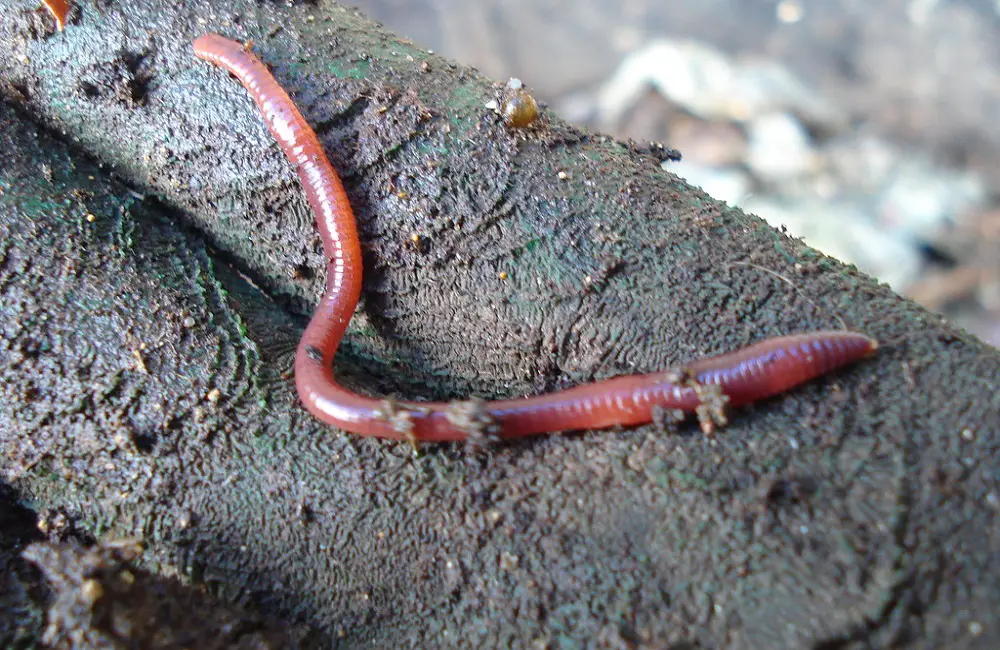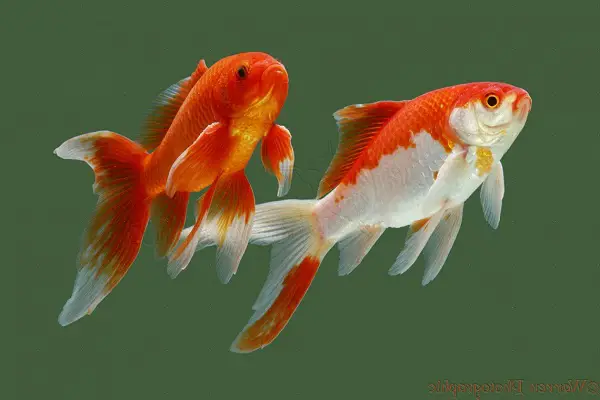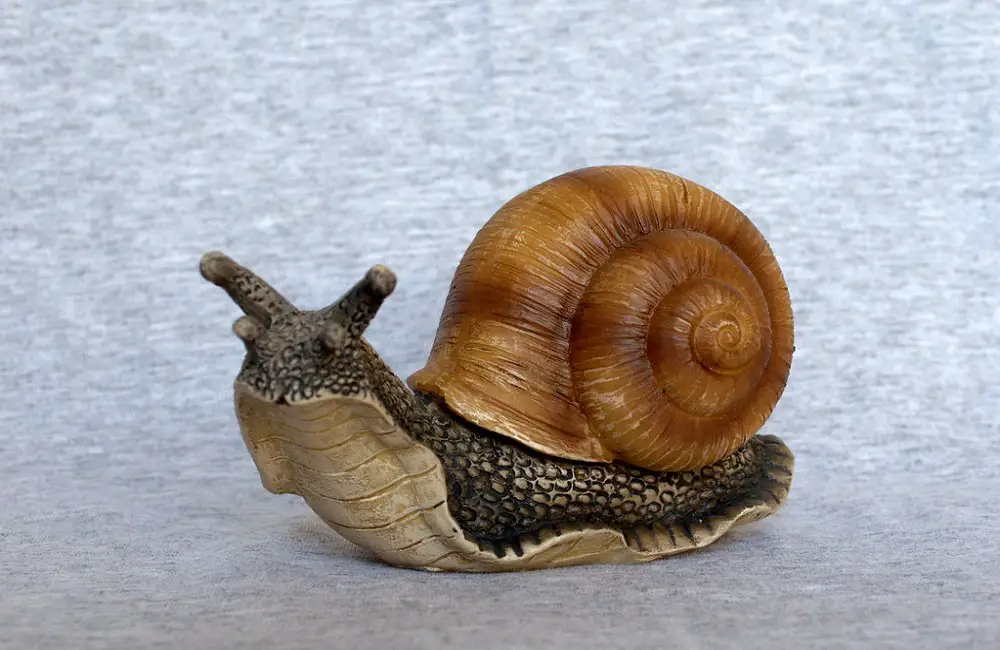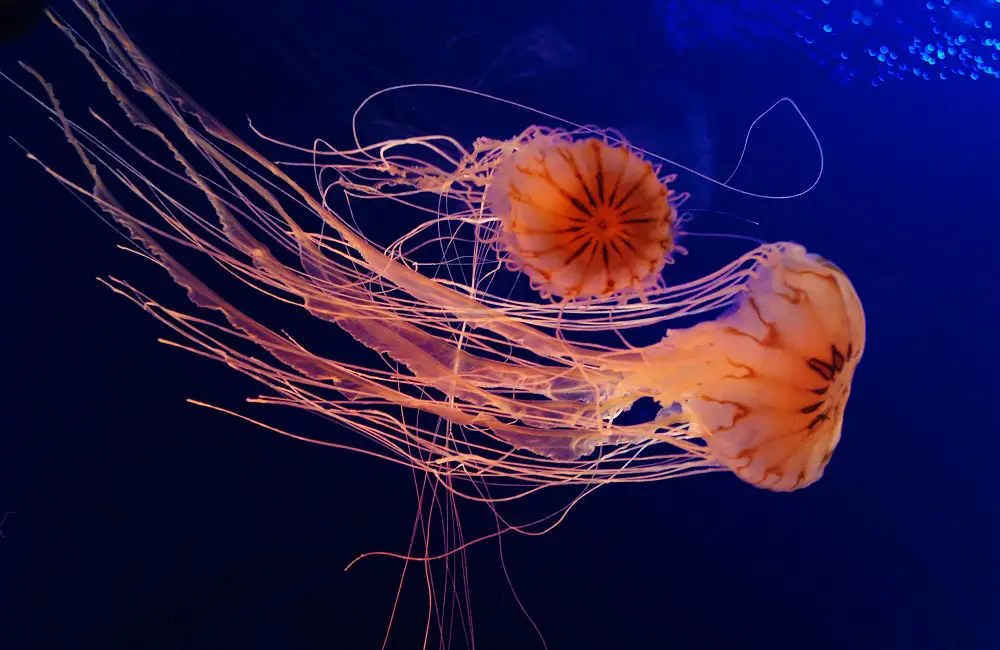Earthworms are one of the many species of worms found in our ecosystem. They make major contributions to the decomposition of organic matter. They derive nutrition from bacteria and fungi found in this matter and thus make significant contributions by helping to recycle the nutrients contained in this organic matter.
So, why do earthworms die when salt is sprinkled on them? Salt is dangerous for earthworms. If salt is sprinkled on their skin, it dries out and causes the earthworm to shrink and die. Higher levels of salt affect their respiratory system while lower levels of salt affect their reproductive system.
We have answered these questions in detail in this article. So read on to find out more about earthworms!
What Are Earthworms?
Worms are invertebrates and have more than 2700 species. The three main groups or phyla of worms are roundworms, flatworms, and segmented worms. Earthworms belong to the phylum Annelida.
The name Annelida was derived from the Latin word “anellus,” which means little rings. The name was given because the earthworm’s body has several rings on it. Thus, it belongs to the class of segmented worms. Earthworms are hermaphrodites. That is, they show both male and female characteristics.
Earthworms are found in temperate soils and tropical soils. They have 23 classes, 700 genera, and more than 7,000 species. They are found in varying lengths, from as small as one inch to as long as two yards in length. Earthworms are the most easily found out of all the soil-living invertebrates.
Should I Worry About Earthworms?
Earthworms significantly change soil structure, water development, nutrients composition, and plant development. They are not required for healthy soil, but rather their essence is generally a marker of a solid soil ecosystem. Worms play out a few valuable capacities.
- Restores activities through microbes: Although worms get their sustenance from microorganisms, many other kinds of microbes are available in their stool as compared to the organic matter that they devour. When this matter goes through their digestive tracts, it is broken up and injected with microbes. This increase in microbial activity helps to recycle nutrients from the organic sources consumed by worms. These nutrients can then be converted into other forms that are beneficial for plants.
- Worms move soil as they burrow: Casts are a soil aggregate that is excreted by earthworms in the form of wastes. This is excreted after they take in mineral substances and organic matter. A famous scientist, Charles Darwin, observed and claimed that when earthworms move from the lower soil surface to the upper surface, they move a lot of the soil with them. Organic matter is also carried through the soil layers.
- Increased water infiltration: As earthworms move through the soil, they increase soil pores. Some of the worms burrow deep into the soil and stay there permanently. Even after the worm dies, these burrows can still exist. They play a major role in soil drainage, especially during periods of heavy rain. But these burrows also help minimize erosion effects due to water on the surface of the soil.
- Hold more amount of water: When organic matter is broken up, the soil pores increase, and some particles bind together strongly (soil aggregation). This helps soil to hold greater amounts of water at a given time.
- Easier root growth: Earthworms clear a path in the soil by deep burrowing. Beneficial nutrients can be found in the tracks made by these worms. This helps the roots to grow easily and go deeper into the soil as well.
What To Not Feed Worms?
Worms live in a consolidated, restricted region, so it is essential to keep the environment liberated from specific sorts of food that they cannot eat or that will cause harm to them.
For example, the pH levels cannot be excessively acidic, or it will hurt the worms. Likewise, worms should inhale through their skin, and some type of food might even aggravate that interaction. Here is a list of things worms should not eat:
- Processed food: Processed foods are not beneficial for us nor are they good for worms. Do not give food that has preservatives in it either.
- Citrus food: Worms are known to eat all kinds of food leftovers and scraps. But they should not be fed with any food containing citrus since it is highly acidic. For example, oranges, lemons, tomatoes, pineapple, etc. are all harmful to a worm.
- Onions and garlic: Very acidic for worms.
- Meat: Worms can eat meat and bones. But this category of food will attract other unwanted insects and pests as well.
- Oil: Worms are known to breathe through their skin. That is why they must not get a layer of oil on top of their skin. Otherwise, they will not be able to breathe. Avocado oil, nut oils, and other natural oils are not harmful.
- Spicy and salty foods: As mentioned before, worms breathe through their skin. Spicy or salty food can irritate their skin which might cause burning and problems in breathing.
- Dairy products: Worms can consume dairy products. Although there is a very unpleasant smell when dairy products are broken down. Perhaps you should avoid giving dairy products!
- Dry grains: Dry grains like bread can be given in small amounts and between intervals, but not very frequently. Other grains such as pasta and rice will only increase the temperature of your worm bin as they are decomposed.
- Poisonous plants: Some plants, which may not be poisonous for you, are toxic for worms. For example, rhubarb’s leaves are poisonous. An insecticide is also sprayed on plants. Make sure you do not spray it where you are keeping your worms or where they get their food from.
- Grass: When grass is broken down, it raises the temperature of the bin where your worm lives. It also emits ammonia. Both are harmful to worms.
Earthworms Respiratory System
The earthworm’s skin secretes mucus, which helps keep its skin moist. This is crucial for the survival of an earthworm as it helps them breathe. There is no respiratory system in its body, and so it respires through the moist skin.
Like other creatures, it requires oxygen to survive. It takes oxygen from the environment, and it is diffused across the moist skin and carried to cells by the circulatory system.
To expel carbon dioxide, it is taken from the cells by the circulatory system and diffused through the skin. We can see the importance of an earthworm’s moist skin. If it dries out, the earthworm will die.
Effect Of Salt On Worms
The level of salt in the soil is an important factor that determines its survival. Earthworms are highly sensitive to salt. High levels of salinity in the soil may cause the worm to die, while low levels may affect its growth rate.
Earthworms cannot tolerate high levels of salt because it destroys the skin, which is very sensitive. Because of this, it will affect its respiratory system, and it will also lose control over osmotic regulation. Thus, salt (sodium chloride) is very toxic to an earthworm.
Salts at lower concentrations may not be fatal to earthworms, but they can significantly affect their ability to reproduce.
Is There A Chance Worms Eat Salt?
An earthworm’s skin dries out when salt is sprinkled on it. This causes them to shrink and eventually die. Salt at a lower concentration would not kill a worm, but it would affect its reproductive system.
Worms cannot bear high ionic levels because it destroys their skin. Their respiratory system does not function properly, nor do they have proper control over osmotic regulation.
The neurosecretory cells that translate neural signals into chemical stimuli are also important as they help maintain the water balance. Salt concentration directly affects these cells. Thus, salt-like sodium chloride is not good for an earthworm.
Does A Worm Die When Cut In Half?
Generally, a worm does not die when it is cut in half. Flatworms and nematodes die when cut in half. But the earthworm does not. When it is cut in two, the two parts do not become two new worms. Rather, the earthworm can survive if the tail end is cut off and it can regrow its segments.
But if the front of its body is cut, where the head and main organs are, it will die. There are various species of earthworms. Some can regenerate their tails quicker and better than others, while others succeed only partially.
Some earthworms cut off their tails on purpose to escape a predator and get themselves out of immediate danger. They can escape while the attacker is distracted by the movement of the cut part.
Will Salt Keep Worms Away?
It is generally not easy to keep out worms once they find a way into your home. You can sprinkle some salt to keep them out. Salt is not good for worms as it dries out their skin and causes them to die.
So, they try to avoid it. You can sprinkle salt in windows, underneath doors, and rooms to keep the worms out. There are other ways to handle a worm infestation as well, such as calling for exterminators.
Final Thoughts
Earthworms are a nuisance but also help keep the soil healthy. However, they cannot withstand high salt concentrations as it causes their skin to shrink and kills them. Earthworms cannot eat salt or consume great amounts of it. Lower concentrations of salt will affect its reproductive abilities.




